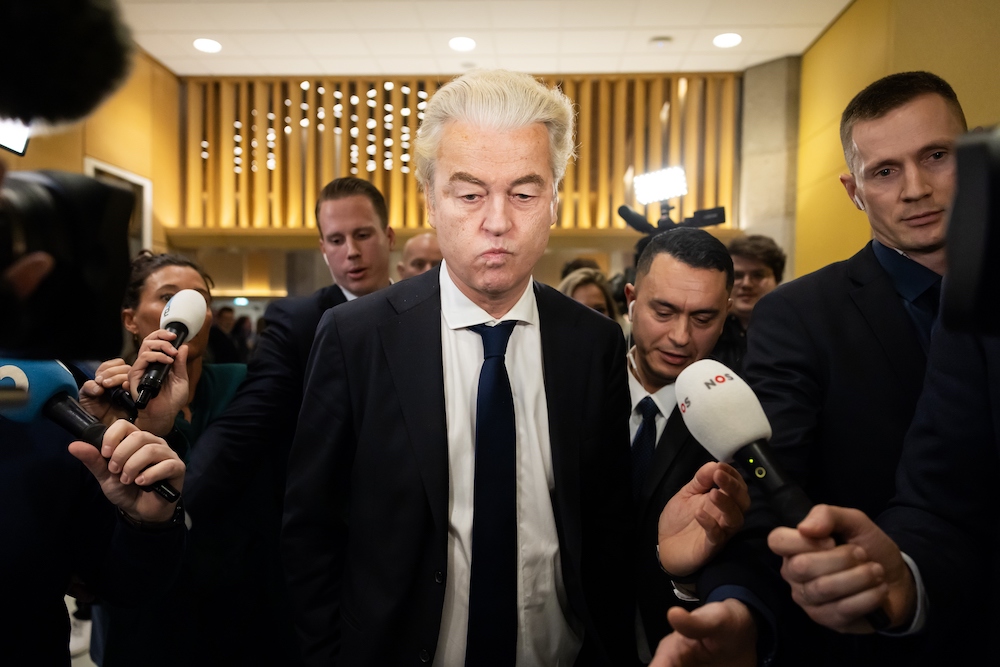Wilders won’t accept refugee law changes, despite criticism

MPs from the far-right PVV have unanimously decided not to accept “any changes at all” to legislation aimed at reducing the number of refugees coming to the Netherlands, despite apparent major problems with the plans, party leader Geert Wilders said on Tuesday afternoon.
The Council of State, the government’s most senior advisory body, said on Monday that there is no evidence the controversial legislation will have the desired effect. In addition, it warned the legislation is likely to exacerbate the existing issues facing the immigration service (IND) and the legal system in handling the current flow of asylum seekers.
It also advised that the legislation should not be submitted to parliament in its current form.
The issue has further strained relations between the four coalition parties and on Tuesday afternoon, Wilders stated that if any other cabinet party pushes for changes, “this cabinet has had it.”
He singled out the NSC in particular for criticism, claiming that if the cabinet collapses, it will be the NSC’s fault.
Earlier in the day, Nicolien van Vroonhoven from the NSC said her party believed amendments, as proposed by the Council of State, should be possible.
Prime minister Dick Schoof, who is not affiliated with any party, said on Tuesday that he is “always open to improvements” and that it is up to the cabinet to decide what happens next. “Mr Wilders is not in the cabinet,” he told reporters outside the parliamentary complex.
NSC leader Pieter Omtzigt, who made good governance the central theme of his party’s election campaign, has not yet commented in detail, instead stating that he preferred to wait for the cabinet’s decision.
“The good thing about the legislative process is that you debate the contents of draft laws in parliament, not via Twitter,” he said.
Three laws
The first piece of legislation scraps permanent residency permits for refugees, reduces the primary refugee permit from five to three years, stops adult children from joining their parents in the Netherlands, and makes it easier to declare people “undesirable aliens.”
It will also stop refugees from bringing in their families until they have lived here for two years and have a home and income.
The second bill will allow officials to differentiate between people who fled their home country because of their ethnicity, sexual orientation, or religion, and those who fled from war or violence, including natural disasters.
A third law will make it a crime to refuse to cooperate with deportation plans.
The next cabinet meeting is on Friday.
Thank you for donating to DutchNews.nl.
We could not provide the Dutch News service, and keep it free of charge, without the generous support of our readers. Your donations allow us to report on issues you tell us matter, and provide you with a summary of the most important Dutch news each day.
Make a donation